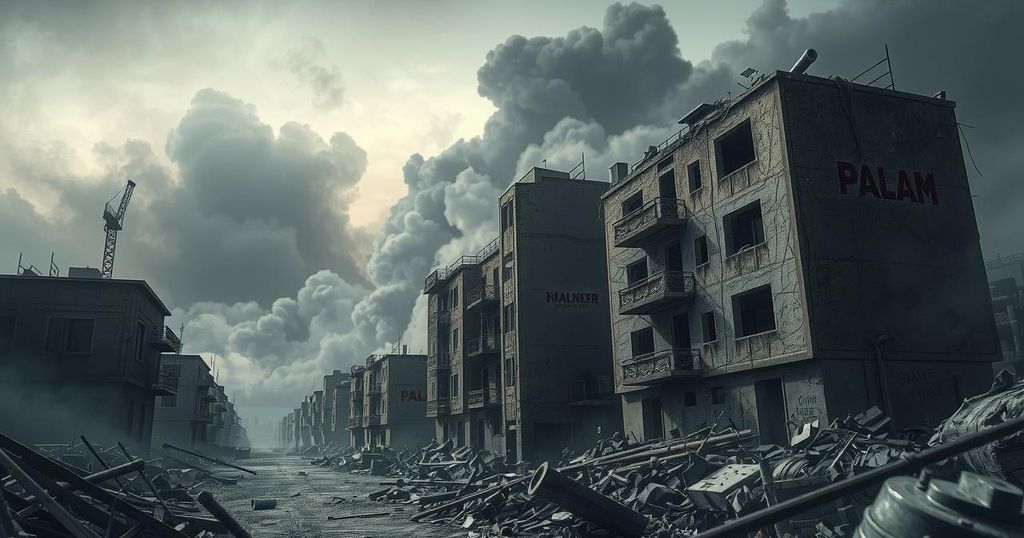The article discusses Houthi Foreign Minister Jamal Amer’s statements about a state of war with the U.S., urging Gulf states to remain neutral as tensions escalate amid U.S. airstrikes in Yemen. Amer reaffirmed attacks on Israeli-linked vessels while denying external influence from Iran. The U.S. has warned Iran of potential repercussions for Houthi actions, complicating the regional dynamic.
Jamal Amer, the foreign minister of the Houthi government, asserted that Yemen is essentially at war with the United States amidst the ongoing U.S. military bombing campaign in Yemen. He indicated that further escalation of conflict is likely and urged Gulf countries, including Saudi Arabia and the UAE, to maintain their neutrality in the situation, acknowledging their current stance of non-interference.
Amer also noted that Iranian officials have communicated with the Houthis, encouraging de-escalation. This follows the Houthis’ announcement to resume attacks on Israeli-linked vessels in the Red Sea as a response to perceived aid blockades affecting Gaza. While Iran has yet to officially confirm these communications, they aim to uphold the narrative that the Houthis independently make their own choices.
In the interview, Amer stated definitively that there will be no reduction in operations against Israeli-linked ships until the Gaza aid blockade ends, asserting that Iranian influence does not control Houthi decisions. He mentioned that although they have received requests to de-escalate from various parties, Yemen’s conflict with the U.S. gives them the right to employ all means for self-defense, increasing the likelihood of escalation.
Amer accused the U.S. of escalating tensions by responding to Houthi attacks on Israeli-linked ships, contending that the group has not targeted international vessels. He praised Gulf states for their current neutrality but warned that any military intervention would make them targets as well, stating, “If any aircraft or base is used against us then we will escalate and we will defend ourselves.”
Subsequently, U.S. President Donald Trump issued a stern warning to Iran, alleging ongoing support for the Houthi group. He emphasized the repercussions any Houthi actions would instigate against Iran, declaring every attack would be interpreted as a direct action against U.S. interests via Iranian influence. Following this, White House Press Secretary Karoline Leavitt echoed Trump’s sentiments, signaling a no-nonsense approach towards Iranian involvement.
Following the initiation of the U.S. bombing campaign, the Houthis have targeted international shipping, disrupting global maritime trade and increasing operational risks for ship routes. As U.S. strikes continue, senior commanders of the group have reportedly been killed. The Pentagon has indicated that the campaign is aimed at convincing the Houthis to cease attacks rather than pursuing regime change, with operations set to pause should the Houthis agree to de-escalate.
In summary, Houthi Foreign Minister Jamal Amer declared the current state of war between Yemen and the United States, emphasizing potential for escalation. He urged Gulf states to maintain neutrality while rejecting any Iranian influence over Houthi actions. The U.S. military response has significantly impacted regional maritime operations, inciting inflammatory exchanges between U.S. leadership and Iranian officials. The situation remains tense as the Houthis continue their assertive stance against perceived aggressors.
Original Source: www.ynetnews.com






